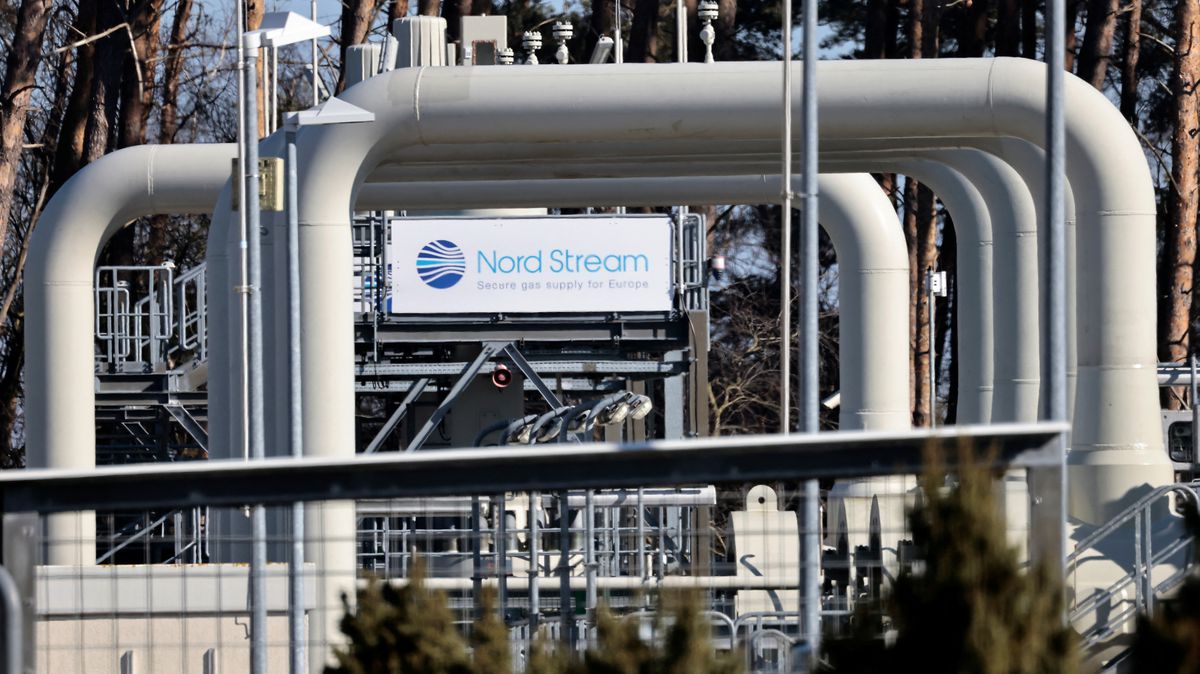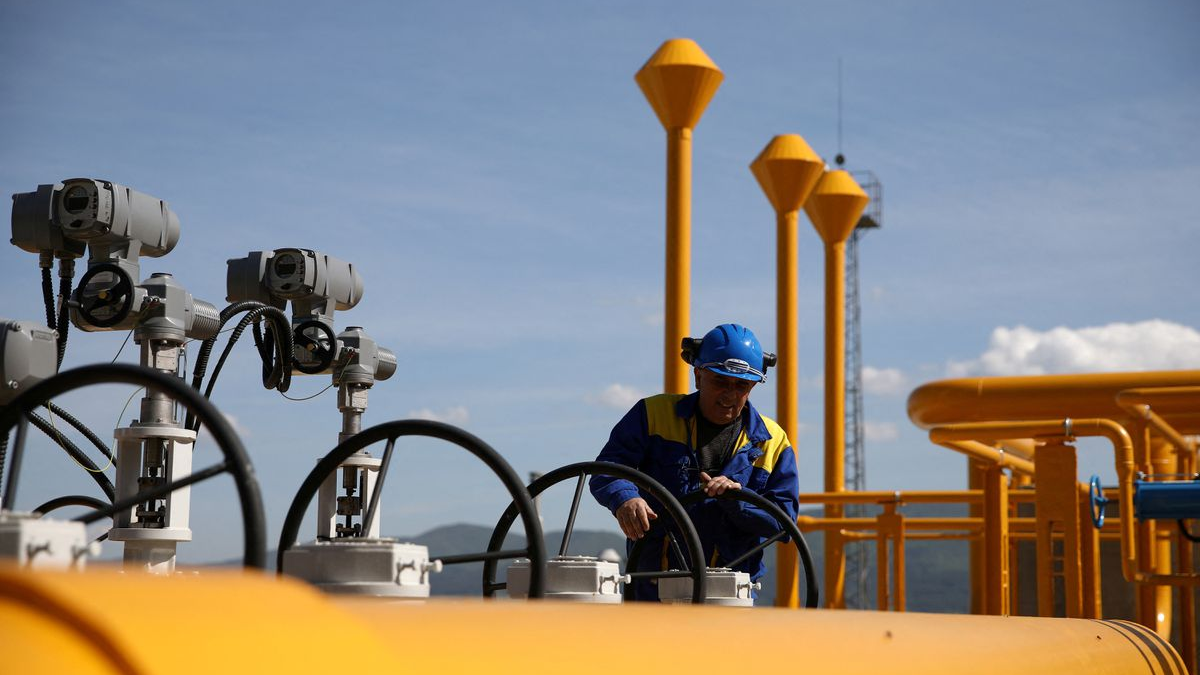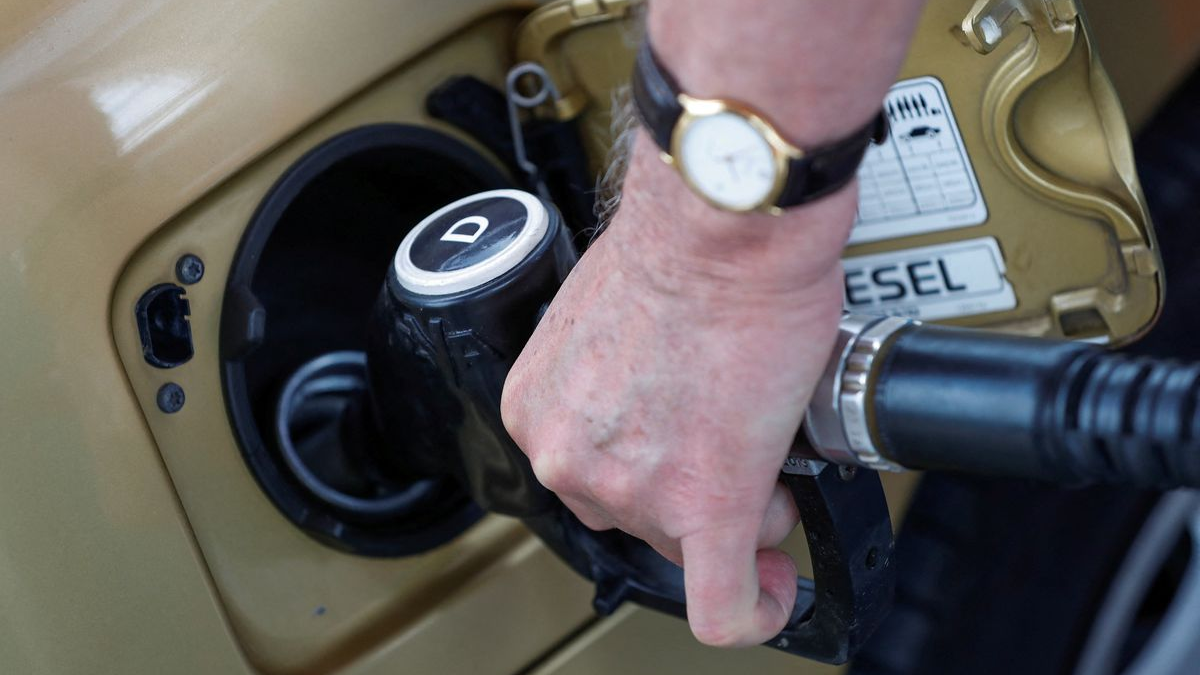
The Victory Column is shrouded in darkness as cars make their way along the 17th of June Street in Berlin, Germany August 6, 2022. The
floodlights that usually bathed the Victory Column were turned off in July to save energy. /Reuters
The Victory Column is shrouded in darkness as cars make their way along the 17th of June Street in Berlin, Germany August 6, 2022. The
floodlights that usually bathed the Victory Column were turned off in July to save energy. /Reuters
Seven months after the Russia-Ukraine conflict began, the global economy is still suffering from its ripple effects. Europe, which depended heavily on Russian oil and natural gas for its industrial economy before the war, was buffeted by the dwindling natural gas supplies from Russia in recent months.
The European Union imported 155 billion cubic meters of natural gas from Russia in 2021, accounting for around 40 percent of its total gas consumption, according to the International Energy Agency. But disruption came as EU leaders agreed to embargo 90 percent of Russian oil imports into the bloc by year-end as part of the sanctions against Russia.
As a result, gas prices have risen by more than 10 times compared to before the pandemic according to European Commission President Ursula von der Leyen.

Pipes at the landfall facilities of the 'Nord Stream 1' gas pipeline are pictured in Lubmin, Germany, March 8, 2022. /Reuter
Pipes at the landfall facilities of the 'Nord Stream 1' gas pipeline are pictured in Lubmin, Germany, March 8, 2022. /Reuter
The energy battle between Russia and Europe has escalated since September, further stoking high prices of gas and electricity.
The energy crisis has been largely due to the economic blowback from sanctions imposed on Russia by European countries, which back Kyiv with diplomatic and military support. As Russia cut gas supplies to Europe, countries rushed to fill their gas storage facilities before the winter, pushing up the wholesale gas prices.
The situation is worsened by the scorching summer this year. Record-breaking temperatures across Europe have led to a lack of water in rivers and reservoirs, which significantly affected Europe's hydropower reservoir capacity.
In Europe, electricity generated by hydropower has dropped by 20 percent from the same period last year, data from Norway-based research and business intelligence company Rystad Energy shows.
Also, power from nuclear sources has dropped by 12 percent. Among a fleet of 56 nuclear reactors in France, which generates 70 percent of the country's electricity, 32 have been shut down for maintenance or corrosion problems.
"In addition, the climate crisis is heavily weighing on our bills. Heat waves have boosted electricity demand. Droughts shut down hydro and nuclear plants," said von der Leyen.

An employee works at a Bulgartransgaz gas compressor station near Ihtiman, Bulgaria, May 12, 2022. /Reuters
An employee works at a Bulgartransgaz gas compressor station near Ihtiman, Bulgaria, May 12, 2022. /Reuters
The spiraling energy costs are hampering industrial activities, forcing European factories to reduce or halt production and putting thousands of their employees on furlough. Toilet paper manufacturer Hakle, one of Germany's largest manufacturers, has filed for insolvency this month due to spiraling energy and raw material costs.
Though expected to be temporary, the cutback in production increases the risk of further recession in Europe. Industrial production endured a 2.4 percent year-on-year drop in the euro area in July 2022, according to a report published in September by Eurostat, the statistical office of the EU.
As power prices go through the roof across the continent, average Europeans are hit with dizzying energy bills as winter looms.
"We paid 160 euros ($158) per month for the heating and hot water in the past. But now we pay 268 euros per month, which means we have to pay an extra 108 euros each month," Barbara, a Berlin resident, told CGTN.
Inflation in Germany will average 8.1 percent this year and peak in the first quarter of 2023 at around 11 percent, according to the economic forecast in September by the Ifo Institute for Economic Research, a Munich-based research institution.
"The cuts to gas supplies from Russia this summer and the drastic price increases they triggered are wreaking havoc on economic recovery following the coronavirus," said Timo Wollmershäuser, Ifo's head of forecasts in an address on September 12, adding that they don't expect a return to normal until 2024.

A driver fills a car at an Envi petrol station in Budakalasz, Hungary, June 13, 2022. /Reuters
A driver fills a car at an Envi petrol station in Budakalasz, Hungary, June 13, 2022. /Reuters
As the conflict drags on, European countries are taking measures to ease the threat of rising energy costs that range from rescuing energy companies to setting price caps to alleviate the burden on businesses and households.
On Wednesday, Germany agreed to nationalize Uniper, the country's largest gas importer, amid an escalating energy crisis. The company has been given bailouts and rescue loans.
Germany said it will spend at least 65 billion euros to help businesses and households cope with soaring energy prices, two days after Russia's energy giant Gazprom announced its Nord Stream 1 pipeline would not resume gas supplies to Europe. The government has already offered subsidies for low-income families, extra child support payments and public transport discounts to citizens.
"Russia is no longer a reliable energy partner," said German Chancellor Olaf Scholz at a news conference in September in Berlin.
The country is now looking for new partners to diversify its energy imports. Scholz is acquiring signing contracts for liquefied natural gas during his visit to the United Arab Emirates this week.
The UK government said it would limit energy bill rises for all households for two years. A typical household energy bill will be capped at 2,500 pounds ($2,827.5) annually until 2024. The energy price cap had been due to rise to 3,549 pounds from October, according to the UK's independent energy regulator, the Office of Gas and Electricity Markets.
France and Italy also plan to impose a price cap on energy prices from January next year to shield consumers from soaring energy prices. Last week, Hungary, which has been criticizing the EU for imposing sanctions on Russia, imposed a price cap on fuels and groceries until the end of this year.
As nations intensify efforts to ease their reliance on Russian imports, benchmark natural gas prices in Europe fell to their lowest in two months on Monday.
The EU energy ministers plan to approve a series of measures to pull down soaring gas prices at an emergency summit by the end of this month. Measures include proposing a windfall tax on the profits of oil, gas and coal companies and cutting electricity consumption by 5 percent during peak hours.
However, according to Germany's international broadcaster Deutsche Welle, reaching an agreement is likely to prove difficult.

